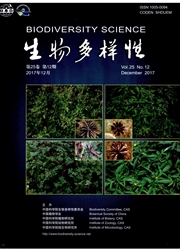

 中文摘要:
中文摘要:
物种之间的杂交事件在自然界中时常发生,虽然大部分自然杂交会成为进化的盲端而被淘汰,但仍有一部分自然杂交在物种形成过程中起到很重要的作用。随着对自然杂交认识的深入,人们对其是否具有保护价值存在着较大的争议。本文从遗传多样性、物种多样性和生态系统多样性三个方面综述了自然杂交在物种进化和生态系统中的作用,认为并不是所有杂交都存在着物种逆转的危险,一些杂交事件可以增加生物多样性,提高物种的环境适应性。同时,我们结合近年来自然杂交的研究案例,提出自然杂交的保护原则:对父母本没有威胁,同时有助于提高生物多样性和环境适应性的自然杂交应该予以保护。希望该建议为国家制定物种保护法律法规和编制红色名录提供参考。
 英文摘要:
英文摘要:
Hybridization occurs commonly in nature. Due to decreasing fitness, a large number of hybridized offspring might be eliminated in natural conditions, but many hybridization/introgression events can be im- portant drivers of speciation. With advances in modem molecular genotyping methods, the mechanisms of hybridization and their impacts on speciation are becoming better understood. However, for taxa with hy- bridized origins, the question of whether the germplasm needs to be conserved presents many viewpoints. Here, we comprehensively review the conservation value of hybrids over three aspects (including genetic di- versity, species diversity, and ecosystem diversity) to pronounce the significant roles in evolution and ecol- ogy. A large number of cases indicate that not all hybridization will lead to genetic assimilation by hybridiza- tion swamping. It can also boost genetic diversity and increase fitness and adaptability. Based on recent re- search on natural hybridization, we propose a principle for conservation of hybridized originated taxa if the existing hybridized taxon does not threaten the parental species, and its unique germplasm can contribute to genetic and adaptive capacity. In such a situation, the conservation of hybridized taxa should be taken into consideration. We hope this proposal could supplement a reference to reinforce conservation policy and spe- cies red listing.
 同期刊论文项目
同期刊论文项目
 同项目期刊论文
同项目期刊论文
 期刊信息
期刊信息
